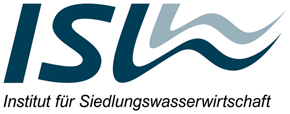
![[Translate to English:] [Translate to English:]](/fileadmin/_processed_/e/2/csm_forschung_bioschred_b738518d87.jpg)
Project Funding: BMEL
Funding Reference: 2203114
Project Duration: 04/2015-03/2018
Project Coordinator:
Prof. Dr.-Ing. Thomas Dockhorn
Scientific Project Work:
M.Sc. Betül Morcali

Plant biomass has become a highly valued commodity. In addition to a search for various suitable plants the improved utilization of the energy potential of biomass is of great interest for researchers. So far utilization of the energetic potential of biomass is difficult, since suitable anaerobic microbial processes for degradation of the lignocellulose matrix of plants are very slow and degradation remains incomplete. The idea is to improve the degradation process by pre-treating the substrate and thus making it more readily available. Therefore economically viable technologies for the pre-treatment of biomass, which improve the subsequent microbial degradation are needed. In this research project, mechanical disintegration as pre-treatment of the substrate will be investigated. Mechanical disintegration leads to an increase of the surface area of the substrate thus making it more readily available for degradation by anaerobic micro-organisms. Manufacturers of disintegration aggregates promise an up to 20% increase in the biogas yield which would correspond to a biodegradability of 80% of the cellulose fraction. However these data have not been verified scientifically so far.
The objective of this project is to examine the underlying processes systematically and to compare them with each other. Five different available mechanical disintegration aggregates will be used for pre-treatment of a number of biomass substrates, typically used in biogas production. In batch tests and in semi-continuous flow-through fermenters, disintegrated substrates will be examined in regard to parameters important for anaerobic degradation. Technical, scientific and operating data from selected biogas plants will be collected and several biogas plants will be monitored on-site. All results will be analyzed and evaluated in regard to their practical relevance. As a result practical recommendations for biogas plant operators, planners and manufacturers will be developed.
The comparison is done through application of the size reduction technology on a range of biomass substrates, which is representative of the practice of biogas production. The crushed substrates are studied in addition to their substrate characteristics in terms of anaerobic degradation in putting and semi-continuous flow fermentation boarding. Technical, scientific and operational economic data from the practical operation of selected bio-gas plants are collected and several plants subjected to an on-site monitoring. The results obtained are evaluated comparatively in terms of their practical relevance and lead to decision support for biogas plant operators and planners as well as manufacturers.
Within this join t research project, the Institute for Sanitary and Environmental Engineering will conduct laboratory tests to characterize and evaluate (disintegrated) substrate samples. Basic parameters such a total solids, loss on ignition, particle size distribution, viscosity, degree of degradation etc. will be determined for the original substrates as well as for pre-treated samples. Further investigations especially in regard to dewaterability will be conducted with the produced digestate and the inoculum. These substances will also undergo special analyses for e.g. EPS, TS(A) and zetapotential. Results from these tests will additionally be used to investigate possible nutrient remobilization and nutrient recovery from biogas plant digestate. Especially nutrient recovery, above all phosphorus recovery, is an important aspect of a sustainable resource economy. The analysis of the digestate makes it possible to determine the influence of mechanical pre-treatment on the organic degree of degradation and to closely.
Vacancies of TU Braunschweig
Career Service' Job Exchange
Merchandising
Term Dates
Courses
Degree Programmes
Information for Freshman
TUCard
Technische Universität Braunschweig
Universitätsplatz 2
38106 Braunschweig
P. O. Box: 38092 Braunschweig
GERMANY
Phone: +49 (0) 531 391-0
